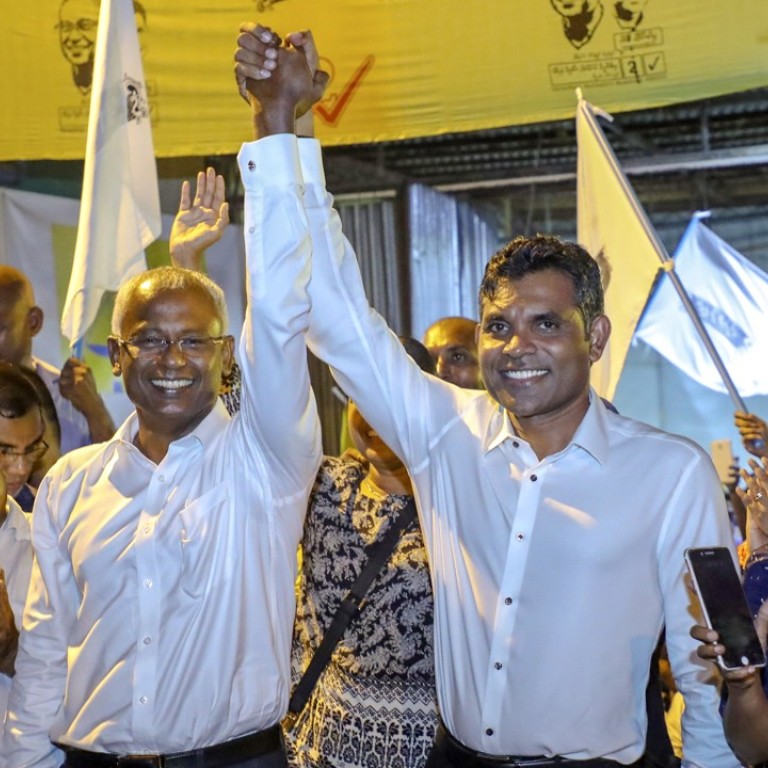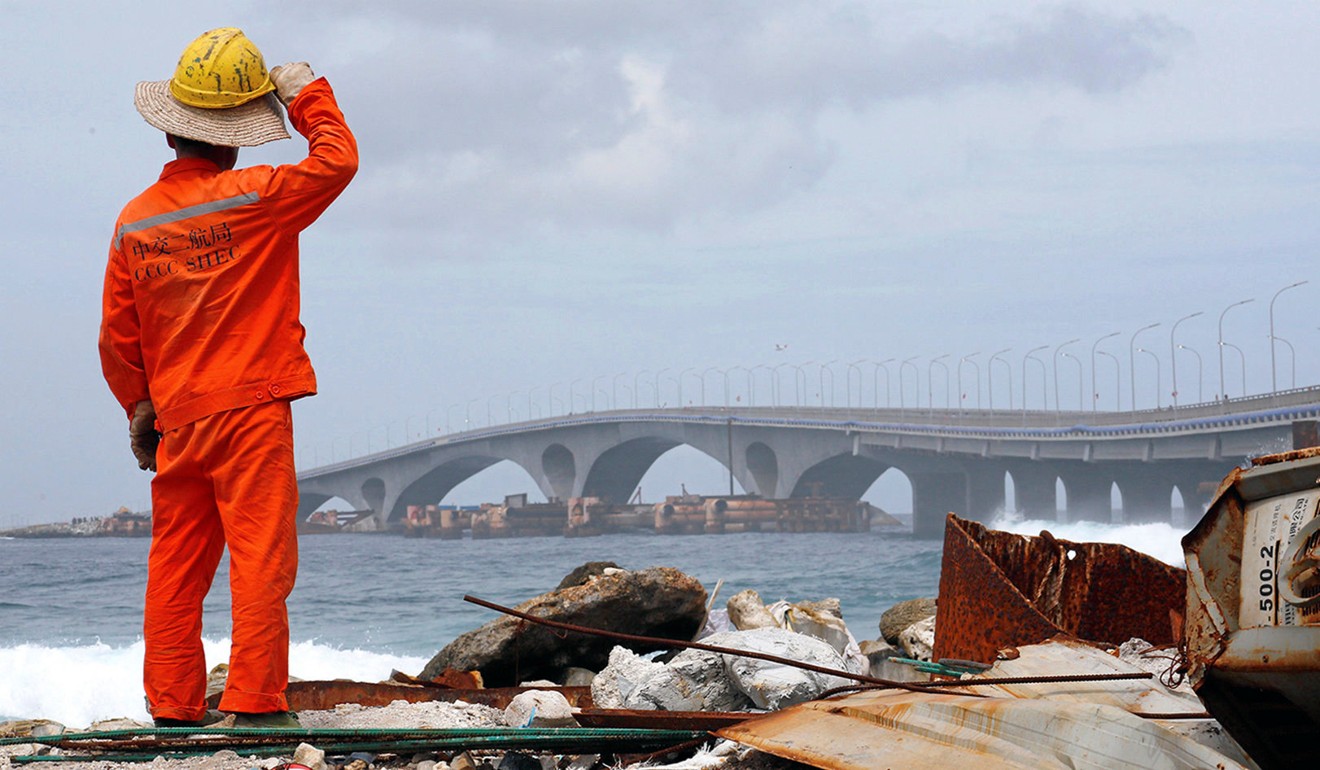
Maldives must tread carefully as it seeks to rebalance ties with China, India, analysts say
Spokesman for president-elect Solih’s party described deals with Beijing as ‘debt traps’ but island nation relies on Chinese investment, tourists
China is “bracing for the worst” after the Maldives voted to oust Beijing-friendly President Abdulla Yameen, analysts said on Monday, while warning that the island nation should tread carefully as it seeks a new balance in its relations with China and India.
Although the Maldives – an archipelago of 26 ring-shaped atolls in the Indian Ocean – has traditionally maintained strong ties to New Delhi, Yameen cultivated a close relationship with Beijing during his five years in office.
Why are China and India so interested in the Maldives?
China sees the Maldives as a key location along the route of its “Belt and Road Initiative”, which aims to develop a network of trade links across Asia and into Africa and Europe. But as a result of the infrastructure development plans signed by the two countries during Yameen’s tenure, the tiny nation is now US$1.3 billion in debt to China, a figure that represents more than a quarter of its gross domestic product, according to Reuters.
With the presidential election victory of Ibrahim Mohamed Solih of the Maldivian Democratic Party (MDP), who according to the country’s election commission picked up more than 58 per cent of the vote, there could now be a shift in relations between Malé and Beijing.
Maldives President Abdulla Yameen concedes defeat after shock election result
Srikanth Kondapalli, a professor of Chinese studies at Jawaharlal Nehru University in New Delhi, said that Beijing would now be preparing itself for a review of the infrastructure projects and economic deals it signed with the Maldives, including the free-trade agreement signed with the Yameen government late last year.
“China is bracing for the worst,” he said.
However, Beijing had dealt with post-election changes to its belt and road partners before, Pakistan and Malaysia being two, and would therefore be prepared to make a “pragmatic response” to the concerns of the new Maldives government, Kondapalli said.

The fate of projects is likely to depend on the sums involved. Some observers have warned that if the debt levels are deemed unserviceable, the Maldives could find itself facing the same problems as its neighbour Sri Lanka.
China, Pakistan can resolve investment problems, but ‘belt and road’ concerns should not be ignored, experts say
Despite ousting a Beijing-friendly government, Sri Lanka was so indebted to China that it was forced to hand over the running of its Hambantota port on a 99-year lease.
Nonetheless, Dr Sinderpal Singh, a senior fellow at the South Asia Programme at the S Rajaratnam School of International Studies in Singapore, said president-elect Solih would be wise to tread carefully in his dealings with both Beijing and Delhi.
“If we view Sri Lanka as a template, the new regime in Maldives will have to be careful as it makes a path correction towards India … [it] will have to be cautious about how it treats China.”
While the island nation had historically had a close relationship with India, it would need to strike a balance in its dealings with the world’s two most populous nations, he said.
“In Pakistan, there is bipartisan support for the China relationship. Malaysia has many options to choose from for partners. But for the Maldives, the options are quite stark: China and India.”
Besides its massive backing in terms of infrastructure investment, China is also a major contributor to tourism in the Maldives, its biggest industry.
About 300,000 Chinese visited the country last year, equivalent to about 70 per cent of the island nation’s population.
“The Maldives is dependent on tourism from China, so this, combined with other investment from China, will require Maldives to take a practical approach,” Kondapalli said.
Sri Lanka to base navy’s Southern Command at Chinese-run Hambantota port
Abhijnan Rej, a senior fellow at Strategic Studies Programme of the Observer Research Foundation in Delhi, said Solih would also have to consider India’s reaction to China’s efforts to increase its influence in South Asia.
“Delhi has tried to sensitise other players in the region to China’s aggressive outreach,” he said.
In July, India’s Foreign Minister Sushma Swaraj presented a “three-pronged strategy” to deal with China’s increasing role in South Asia, which encompassed tracking Beijing’s activities, pursuing India’s own projects, and educating neighbours about the consequences of engaging with China.
Solih described his election win on Monday as “a moment of happiness, a moment of hope”.
“The message is loud and clear,” he said. “The people of Maldives want change, peace and justice.”
Additional reporting by Reuters, Associated Press, Agence France-Presse

